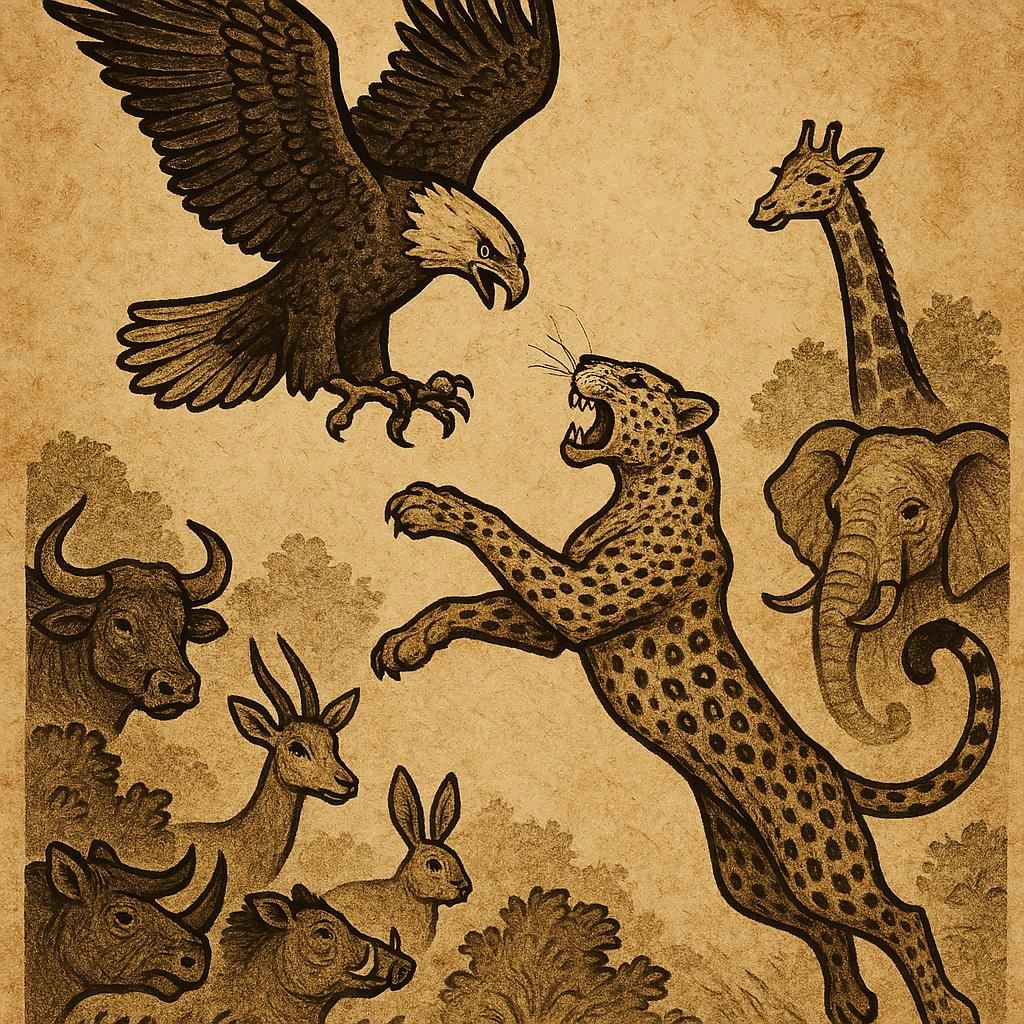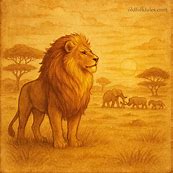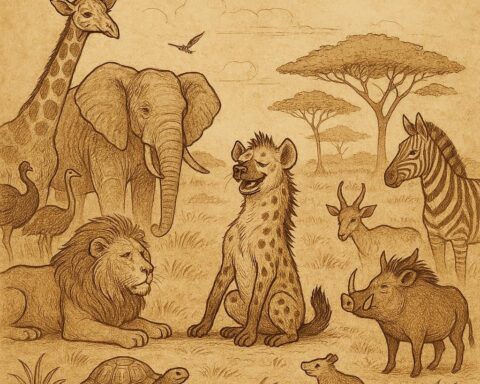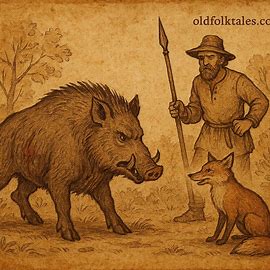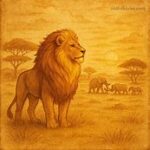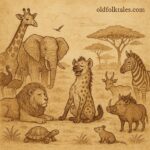In the deep forests of Cameroon, where the Fang people have long lived among towering trees, winding rivers, and the calls of wild creatures, hunters were often judged not only by the game they caught but by the skill, wisdom, and bravery that guided them. Animals, too, were measured by these qualities, and stories were told to explain their strengths and weaknesses. One such story asks the question: Which is the better hunter, an eagle or a leopard?
Long ago, Leopard ruled the forest floor with his power and stealth. His spotted coat blended perfectly with the shadows, making him nearly invisible as he crept upon unsuspecting prey. He was proud, strong, and feared by all. On the other hand, Eagle ruled the skies. With sharp eyes that could see far across the canopy and talons that struck with unmatched force, he believed no creature could rival him.
One day, as both hunters boasted of their greatness, they met in a clearing. Leopard stretched lazily beneath a tree, licking his paws, while Eagle perched above, his feathers glistening in the sunlight.
READ THIS: The Leopard’s Quest for Marriage
“You may be swift on the ground,” Eagle said, “but I can see prey from a distance you cannot even imagine. My wings carry me faster than your paws ever could.”
Leopard flicked his tail and replied with a growl, “You may fly, but it is I who takes down the strongest creatures. Your prey are small and weak compared to the animals I conquer.”
Their words turned to argument, and soon both animals decided the matter could only be settled by a test. A challenge was called: each would hunt in front of the other, and the forest itself would judge who was truly the better hunter.
The first turn went to Eagle. With a mighty beat of his wings, he soared high above the trees. His eyes scanned the forest floor until he spotted a hare darting between the roots. Swift as lightning, he dove, talons outstretched, and within moments the hare was his. He rose again into the sky, holding his prize proudly. The animals that had gathered gasped in admiration.
Not to be outdone, Leopard prepared for his hunt. He crouched low, his muscles tense, and his eyes fixed on a young antelope grazing nearby. With silent steps he crept forward, each paw carefully placed. Suddenly, he leapt. His body flew through the air with unmatched strength, and before the antelope could escape, Leopard’s jaws closed around it. The kill was swift and powerful.
The animals murmured among themselves. Both hunts had been successful, but the prey were of different sizes and strength. Some argued Eagle was better for his speed and vision; others said Leopard was greater for his courage and strength.
Unwilling to accept a tie, Eagle proposed another round. This time, he would strike a monkey high in the branches, a creature quick and clever. With sharp cries, Eagle swooped down. The monkey shrieked and leapt from branch to branch, but Eagle’s wings carried him with perfect timing, and soon the monkey was caught in his talons.
Leopard snarled, refusing to be outshined. He prowled into the thickets and soon spotted a wild boar, fierce and stubborn. The boar charged, but Leopard’s agility was unmatched. With claws extended and teeth bared, he wrestled the beast into submission. It was a hard battle, but Leopard emerged victorious, his coat stained with the struggle.
Now the forest animals were divided more than ever. “Eagle is unmatched in the sky!” some declared. “Leopard is master of the earth!” others cried. The argument grew heated until wise Tortoise slowly stepped forward.
“Listen,” Tortoise said in his calm, steady voice. “You ask which is the better hunter, but you forget that each rules a different realm. Eagle cannot hunt on the ground as Leopard does, and Leopard cannot soar in the skies as Eagle does. Why compare when the Creator has given each its place? Both are mighty, and both deserve respect.”
The forest grew quiet. The animals realized the wisdom in Tortoise’s words. Eagle ruffled his feathers, no longer boasting, while Leopard lowered his head, his pride humbled. From that day forward, the Fang people told this tale to remind all that strength takes many forms, and greatness is not measured by competition but by living well in the place one is given.
Moral Lesson
The Fang folktale teaches that every creature has its own strengths and place in the world. Comparing ourselves to others only breeds pride and conflict, while recognizing unique gifts brings balance and respect. True wisdom lies in appreciating differences rather than competing to prove superiority.
Knowledge Check:
What qualities made Eagle a skilled hunter in the story?
Eagle had sharp vision, swift flight, and deadly talons that made him powerful in the sky.How did Leopard demonstrate his hunting ability?
Leopard used stealth, strength, and courage to capture larger prey such as antelope and wild boar.Why were the animals divided in their judgment?
Some admired Eagle’s speed and accuracy, while others valued Leopard’s power and bravery.What role did Tortoise play in the folktale?
Tortoise provided wisdom, reminding the animals that each hunter rules a different realm and should not be compared.What was the outcome of the contest between Eagle and Leopard?
Neither was declared the better hunter; instead, both were respected for their unique abilities.What broader lesson does this Fang story teach?
It teaches that every being has unique gifts, and comparing strengths is less important than appreciating differences.
Source: Fang folktale, Cameroon. Recorded by Robert H. Nassau in Where Animals Talk: West African Folklore Tales(1914).
